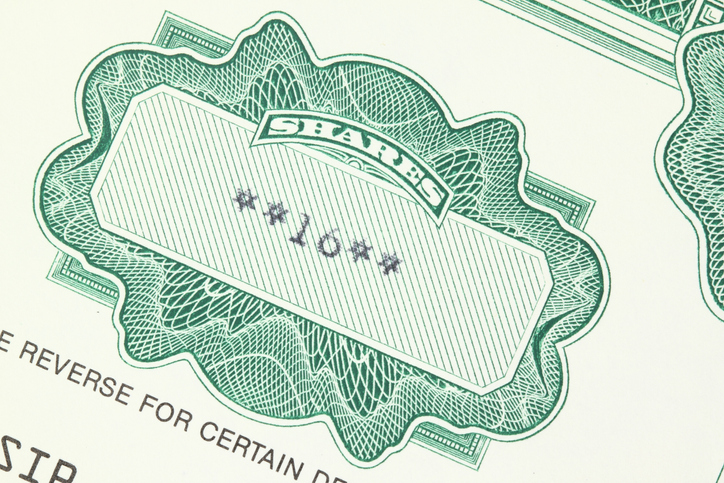There are number of reasons why a company may wish to purchase its own shares, including returning surplus cash to its shareholders in a tax efficient manner after a successful business sale or providing an exit for shareholder leaving the company for whatever reason.
As a share buyback results in a company reducing its cash and other reserves, the public policy underpinning the share buyback regime in the Companies Act 2006 (“CA 2006”) is that companies should not be buying back its shares unless it can satisfy the strict statutory conditions.
Failure to comply with the buyback procedure in the CA 2006 can be serious. Both the company and the directors are liable and criminally so in the case of the directors. If the procedural breaches are more than minor, a buyback is treated legally as if it never happened and so the buyback shares are not cancelled. That means the selling shareholder will remain the owner of the buyback shares regardless of what the company shareholders’ register says or what is filed at Companies House.
This can have serious consequences which mostly only becomes apparent in later years when the company is under the due diligence microscope as part of it being sold. If there are historic buybacks which are procedurally defective, a potential buyer of that company will be concerned that the shares it is buying from the owners it is negotiating with may not, after all, own 100% of the company they are trying to sell. This may result in the exit sale not completing or the price structure being revised to provide more comfort to the buyer. Rectifying those defects with the “seller” may not be possible if that person is no longer contactable or, if he is contacted, could be expensive for the current owners if they have to share some of their exit proceeds to gain that person’s cooperation.
Financing the Buyback
The first consideration for any company considering buying back any of its shares should be how it is financed. Under the ACA 2006 a private company may fund the share buyback:
- from distributable profits;
- from the proceeds of a fresh issue of shares made for the purposes of funding the buyback;
- out of capital under the permissible capital payment regime; or
- out of capital under the “de minimis” exemption.
However large or small the buyback price, it is critical that the company pays that price in full at the time the shares are purchased and that is evidenced in writing in the buyback documentation. Deferring payment or paying in instalments are not permitted and will result in the buyback being void from the outset.
While tax considerations are the not the focus of this article, when considering financing options the company and selling shareholder should also seek professional advice as to the tax implications of any proposed buyback. In particular whether the return of value to the selling shareholder is treated as an income distribution subject to income tax or a capital distribution subject to capital gains. Although individual circumstances may vary, capital tax treatment is generally more favourable but subject to satisfying various conditions. Getting formal clearance from HMRC before carrying the buyback should help to clarify the tax treatment.
Initial legal considerations
Before carrying out a buyback, a company must first ensure that it is permitted to do so. Under the CA 2006, there is no requirement for a company’s articles to include a specific buyback authority. The articles, though, should still be checked to ensure there is no specific restriction on share buybacks. If there is, a shareholder’s resolution amending the company’s articles will need to be passed.
The company’s and any shareholders’ agreement should also be checked to see whether there are any pre-emption provisions on share transfers which require the buyback shares to be first offered to the existing shareholders before they can be purchased by the company. If so, waivers from the existing shareholders should be obtained beforehand.
The Buyback Contract and shareholder approval
A company may generally only make an off-market purchase of its own shares if a buyback contract between the company and selling shareholder is approved before the purchase. That contract will need to be drafted carefully and legal advice obtained as to how the sometimes competing interests of the company and the selling shareholder are to be balanced.
The contract can be for the purchase now of, say, 100 company shares, could entitle the company to purchase those 100 shares at a future date subject to satisfying certain conditions or purchase those 100 shares in several tranches over time. The price can be fixed or, as regards any future purchases, can be calculated by reference to a profit based formula. The contract may also consider how any price disagreements are to be resolved and what contingency arrangements should apply if those future purchases cannot be completed because the company lacks sufficient distributable profits at that time.
Unless the company’s articles or any shareholders’ agreement requires a higher level of approval, the buyback contract must be approved by a simple majority of the company’s shareholders. Shareholder approval must be obtained before the buyback contract is entered into or, if obtained afterwards, before any shares are purchased under that contract. The selling shareholder is not entitled to vote on the resolution approving the buyback of his shares.
Defective buybacks in a company’s past may, if they are not identified, also taint subsequent buybacks by that company if those subsequent buybacks do not get the necessary level of shareholder approval because approval from the first defective buyback “seller” was not sought meaning that shareholder approval for the subsequent buybacks, though seemingly obtained, proves later to be insufficient.
Buyback funded out of capital (where de minimis exemption does not apply)
Share buybacks funded out of capital are only permitted after a company has used all its distributable profits and the proceeds of any fresh issue of shares made for the purpose of funding the buyback. The capital funded element is the “permissible capital payment”.
As a payment out of capital is potentially prejudicial to the interests of a company’s creditors, the CA 2006 prescribes the following additional procedures:
- the directors make a solvency statement (including stating the amount of the permissible capital payment) supported by an auditor’s report;
- the shareholders must approve the payment out of capital by special resolution;
- the company must give notice of the proposed payment out of capital to the public who, if they are shareholders or creditors, can object; and
- the directors’ statement and auditor’s report must be made available to the public for inspection.
If a company does not follow the above procedure, the buyback will be void. If the company is wound up insolvently within one year of the buyback, the selling shareholder and directors who signed the solvency statement are liable to repay the amount the shares were bought of capital.
Buyback funded out of capital where the de minimis exemption applies
The CA 2006 allows a company to buy back its own shares out of capital provided the aggregate buyback purchase price in that financial year does not exceed the lower of:
- £15,000; or
- 5% of the company’s paid up nominal share capital at the beginning of the relevant financial year.
The de minimis exemption allows companies to buyback small amounts of shares out of capital (whether or not it has the distributable profits) without following the above directors’ solvency statement supported by an auditor’s report procedure. The requirements for a buyback contract and shareholder approval will, though, need to be observed as summarised above.
Get advice to avoid future problems…
The above is only a brief whistle-stop tour of the CA 2006 buyback regime. Whilst share buybacks can facilitate meeting shareholders key objectives, failure to follow the relevant statutory procedures can create significant liabilities for directors and shareholding uncertainties which could jeopardise future corporate transactions. There really is no substitute for taking early and experienced legal advice.
Should you require guidance with share buybacks and the options available to your company, the corporate team at FSP would be happy to assist.

